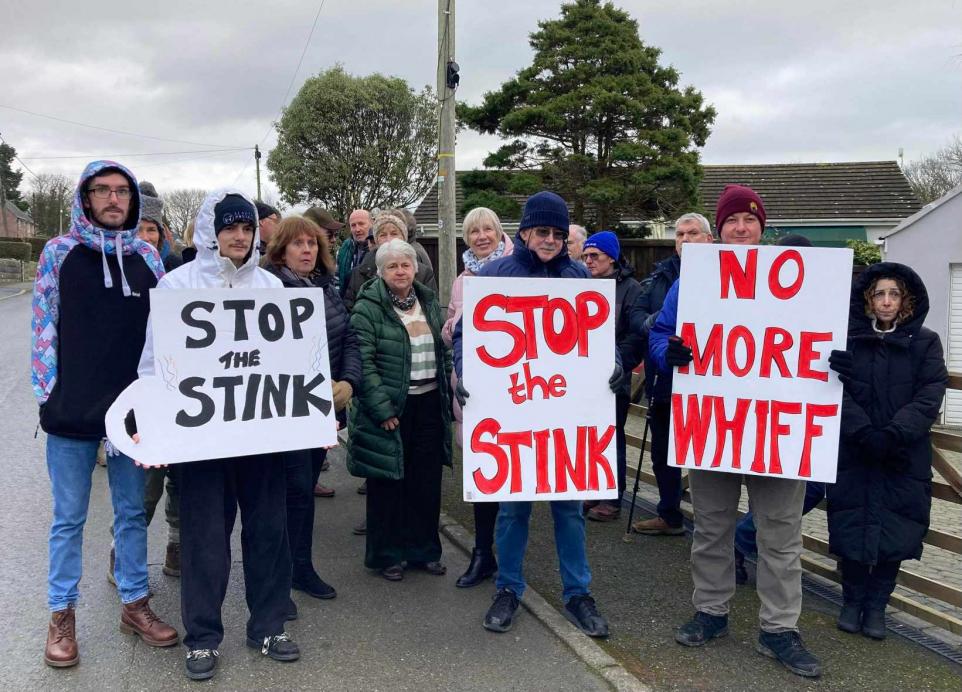Health
Hay fever warning – Tree pollen on the rise across Wales

POLLEN experts are warning that the next few days could be significant for those who suffer from hay-fever.
“The first medium pollen counts of the season are forecast across Wales over the next 5 days,” says airborne allergens expert Max Wiseberg, “and many hay fever sufferers start to experience symptoms when the count reaches this level. The main culprit at this time is birch pollen, the pollen most tree pollen allergy sufferers are allergic to. So now is the time for hay fever sufferers to prepare for the season ahead.”
“Birch is arguably the most problematic tree of them all for hay fever sufferers,” continues Max. “In the same family as alder and hazel trees, the birch is the worst of the bunch for the 25% of UK hay fever sufferers who are allergic to tree pollen. The peak of the birch pollen season can run throughout April to mid May.”
“So now is the time to start preparing for the season ahead. If you are already starting to experience hay fever symptoms or want to avoid them being triggered, start to apply an allergen barrier balm, such as HayMax, which works by trapping pollen before it enters the body and starts to work straight away. If you use antihistamines, many manufacturers recommend starting a month before your season starts, so if you haven’t started already, now is the time. And it’s the same with nasal sprays; they need several days to build up to their maximum protective effect and some makers advise starting using them one month before your hay fever season begins.”
“If your symptoms are particularly bad on a given day, or you find that nothing really works, or the remedy you use stops working, try combining products for a greater effect, in other words create your own ‘Hay Fever First Aid Kit’, a combination of products which can be complementary to one another. My recommendation would be an allergen barrier balm to trap the pollen, one (and only one) antihistamine to combat the overproduction of histamines, one (and only one) steroid nasal spray, as the nasal area is where the pollen enters and is most affected, plus one or more drug-free or natural products.”
“There are several practical things you can do to reduce the effects of pollen:
- When you’re outdoors wear wraparound sunglasses to stop pollen getting in your eyes. Apply an allergen barrier balm to help prevent pollen getting up your nose. And wear a cap or other head cover and tie up long hair to stop pollen getting trapped in your hair,
- When you return home, take off your shoes at the front or back door so you don’t bring pollen indoors with you, Washing your face, changing your clothes and having a shower will all help by removing pollen from your hair and body.
- Keep pollen out of your home. Keep doors and windows closed. Dust and vacuum regularly, including fabrics and upholstery, to remove pollen. Damp dusting will help stop pollen being dispersed back into the air. If you have a pet, keep it well groomed and washed regularly, to remove pollen from its fur and keep it out of the room in which you sleep.”
“There is currently no cure for hay fever – they’ve been working on it for years – but until there is there are many products – both natural and conventional – and lifestyle changes you can try. Check out my website www. https://haymax.biz/hay-fever/ for more ideas. Good luck!”
Health
Dental services ‘facing collapse’ in Wales

DENTAL services are at risk of catastrophic collapse, with people resorting to “DIY dentistry” and pulling their own teeth with pliers, the Senedd heard.
Peter Fox warned that NHS dental services are seeing rapid decline following the Welsh Government’s introduction of a new contract in 2022.
He told the Senedd: “These contracts don’t work for dentists, nor do they work for patients,” as he highlighted a 60% fall in the number of NHS dental posts compared with 2021.
Echoing concerns raised by the British Dental Association, the Conservative MS said dental services face potential catastrophic collapse due to the contract reforms.
Mr Fox, who represents Monmouth, cautioned that patients are being left with a choice between years’-long waiting lists or paying hundreds of pounds for private care.
He said: “This lack of accessibility has led people to drastic action – from harrowing stories of people pulling out their own teeth with pliers or people being forced to take 200-mile round trips to get dental appointments. Clearly, this is just simply unacceptable in the 21st century.”
Leading a debate about primary care on April 24, Mr Fox warned GPs are also struggling due to a lack of contract funding, which is not uplifted in line with rising costs and pay uplifts.
He told MSs some GPs are having to pay staff and utility bills out of their own pockets, with practices forced to withdraw more and more services.
The Conservative said some constituents face 50-mile round trips and 50-week waits for services in hospitals that were previously carried out routinely and timely in GP practices.
Mr Fox, who led Monmouthshire council for more than a decade before being elected to the Senedd in 2021, urged the Welsh Government to urgently review GP and dental contracts.
Eluned Morgan told the chamber the majority of contacts with the NHS are in primary care – with up to one-and-a-half million contacts a month in a population of three million people.
Wales’ health secretary recognised the extreme pressure on practices, saying the contract last year provided a 5% uplift not just to GPs but also staff who work in their surgeries.
She said: “We want to reform the dental contract on a preventative basis, responding to risk and need, and we have introduced up to 300,000 appointments to new dental patients.”
Baroness Morgan, who is married to a GP, stressed the importance of other professionals in the community, such as pharmacists and opticians, to the preventative agenda.
She said most pharmacies in Wales provide a free service for 27 common ailments, helping to reduce pressure on GPs and other parts of the healthcare system.
During first minister’s questions on April 23, Sian Gwenllian said many of her constituents are unable to access public dental services – “an entirely unacceptable situation”.
The Plaid Cymru MS for Arfon raised concerns a new dental academy in Bangor closed its books to NHS patients despite promises it would help tackle a lack of public services.
Sam Rowlands, the Conservatives’ new shadow health secretary, said far too many people across north Wales do not have access to an NHS dentist.
He raised comments from Russell Gidney, chair of the Welsh general dental practice committee, warning of a rise in “DIY dentistry” due to a lack of proper access.
Vaughan Gething said the Welsh Government is committed to reforming the dental contract to unlock capacity and access to NHS services is one of the health secretary’s top priorities.
Health
Pembrokeshire residents suffer severe health decline ‘due to landfill gases’

A PEMBROKESHIRE couple, Mr Richard and Revd Patricia Rogers of Crud yr Awel, are experiencing severe health issues attributed to emissions from the Withyhedge Landfill, resulting in drastic lifestyle changes and severe symptoms.
Revd Rogers, who has managed asthma since childhood, reported a significant deterioration in her condition following exposure to landfill gases. Despite having controlled her asthma with minimal medication for years, she now requires intensive treatment including increased doses of Symbicort and Salbutamol Sulfate inhalers, alongside courses of steroids and antibiotics. Her symptoms have escalated to include extreme breathlessness, a hacking cough, frequent nosebleeds, continual headaches, and vertigo, culminating in a severe impact on her ability to perform daily tasks and care for her disabled daughter.
The couple’s health is closely monitored through their doctor’s surgery, and they attend the asthma clinic regularly. However, feeling powerless to directly change the situation, they have taken a stand by cancelling their council tax payments, a decision they plan to maintain until the landfill issue is resolved.
Revd Rogers has also prepared a letter to the Coroner, outlining the severity of her health issues as potentially life-threatening due to the landfill’s impact. This dramatic step underlines the gravity of their situation and their desperation for a resolution.
The Rogers’ story is not just a personal tragedy but a stark example of the broader environmental and health challenges faced by the community surrounding the Withyhedge Landfill.
They are calling for punitive measures against those responsible, including compensation for the financial impacts of their ordeal.
Their story has surfaced on the same day we reported that Natural Resources Wales is taking further enforcement action against the firm running the site.
NRW has issued site operators Resources Management UK Ltd (RML) with a further Regulation 36 Enforcement Notice which requires the operator to deliver a series of actions by specified deadlines to address ongoing smells from the landfill.
You can read more about the Enforcement Notice on the NRW website.
Outgoing Council Leader, Cllr David Simpson, said in a statement this week: “The smell from Withyhedge is having a major impact on residents and visitors. This situation has gone on too long and it is unacceptable.
“We now need to see RML act on the demands of the Notice and within the deadlines.
“The Council fully backs NRW’s stance that nothing is off the table in terms of further enforcement, including suspending the site’s environmental permit if appropriate, and we remain committed to working with NRW to ensure a long term solution to these issues.”
Health
Paul Davies responds to St David’s Surgery news

LOCAL Senedd Member Paul Davies has reacted to the news that St David’s surgery in North Pembrokeshire has decided to resign its General Medical Services Contract. It’s understood that for registered patients, care will continue to be provided until the end of October 2024 and patients are being advised to remain registered with the Practice while longer-term plans are developed. Patients will be invited to share their views as to how these services can continue to be delivered after the end of October.
Mr Davies said, “This is a very worrying announcement and patients in the local area will be understandably anxious about what this means for the future.”
“It’s vital that GP services can continue to be delivered in the area in the future and so Hywel Dda University Health Board must be open with patients of the Practice about their plans and address the community’s concerns. Every effort must be made to ensure that patients are able to access services in the long term.”
“I will of course, be raising this with the Welsh Government and urging the Health Minister to do everything in her power to support the Health Board and help ensure patients can access these vital services.”
-

 News3 days ago
News3 days agoPolice and air ambulances at ‘serious incident’ at West Wales school
-

 News7 days ago
News7 days ago20mph U-turn: Some roads will return to 30mph following public outcry
-

 Community7 days ago
Community7 days agoMiracle pup finds her forever home after heart-wrenching journey
-

 Crime3 days ago
Crime3 days agoPembrokeshire pensioner accused of 17 sexual offences against children
-

 Business19 hours ago
Business19 hours agoLargest Welsh port appoints communications and marketing director
-

 Crime2 days ago
Crime2 days agoAll three school stabbing victims discharged from hospital, police confirm
-

 Community4 days ago
Community4 days agoCounty Hall to offer space for community banking
-

 Crime5 days ago
Crime5 days agoBrian Davis: Wanted on suspicion of commercial burglary

























